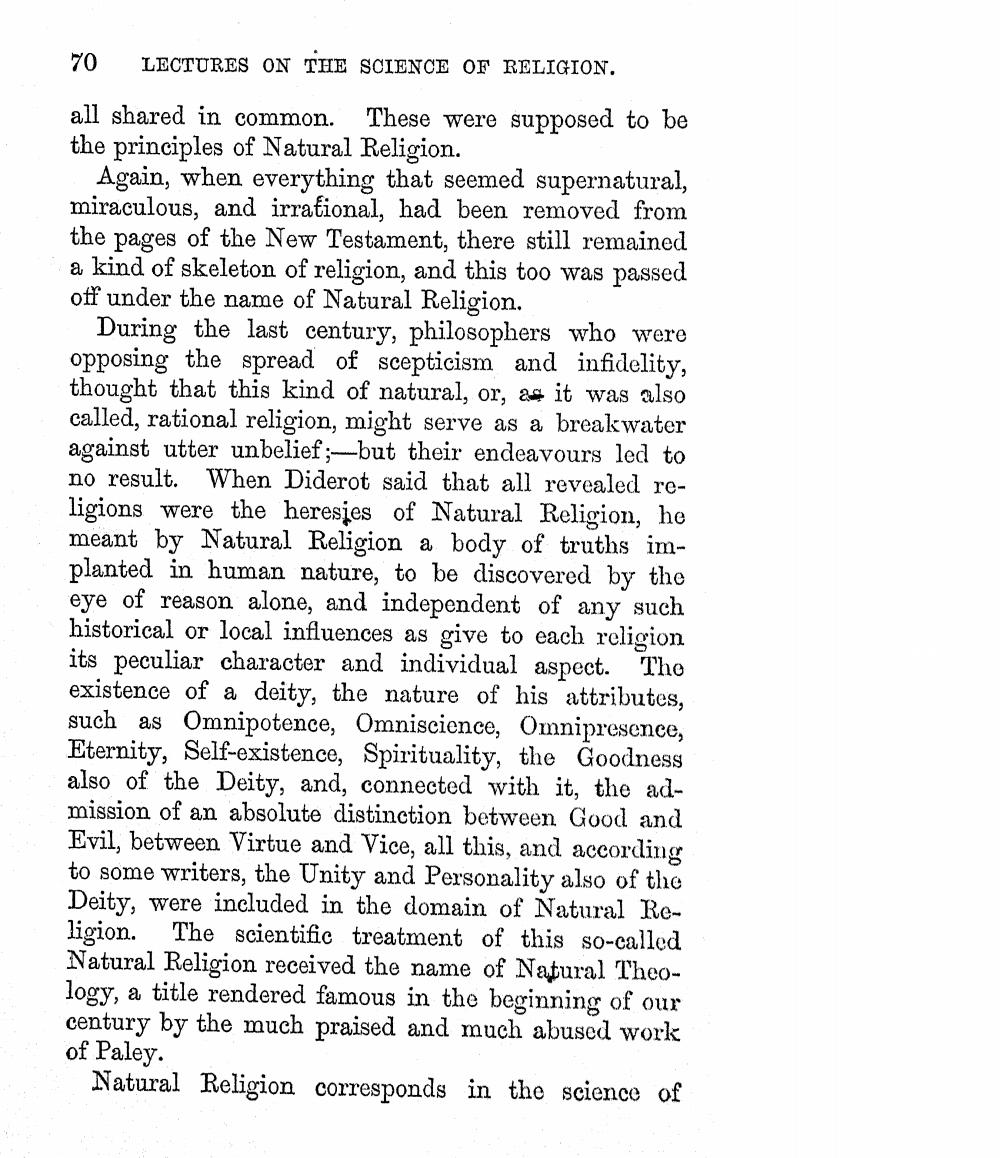________________
70 LECTURES ON THE SCIENCE OF RELIGION. all shared in common. These were supposed to be the principles of Natural Religion.
Again, when everything that seemed supernatural, miraculous, and irrational, had been removed from the pages of the New Testament, there still remained a kind of skeleton of religion, and this too was passed off under the name of Natural Religion.
During the last century, philosophers who were opposing the spread of scepticism and infidelity, thought that this kind of natural, or, as it was also called, rational religion, might serve as a breakwater against utter unbelief;-but their endeavours led to no result. When Diderot said that all revealed religions were the heresies of Natural Religion, he meant by Natural Religion a body of truths implanted in human nature, to be discovered by the eye of reason alone, and independent of any such historical or local influences as give to each religion its peculiar character and individual aspect. The existence of a deity, the nature of his attributes, such as Omnipotence, Omniscience, Omnipresence. Eternity, Self-existence, Spirituality, the Goodness also of the Deity, and, connected with it, the admission of an absolute distinction between Good and Evil, between Virtue and Vice, all this, and according to some writers, the Unity and Personality also of the Deity, were included in the domain of Natural Religion. The scientific treatment of this so-called Natural Religion received the name of Natural Theology, a title rendered famous in the beginning of our century by the much praised and much abused work of Paley.
Natural Religion corresponds in the science of




